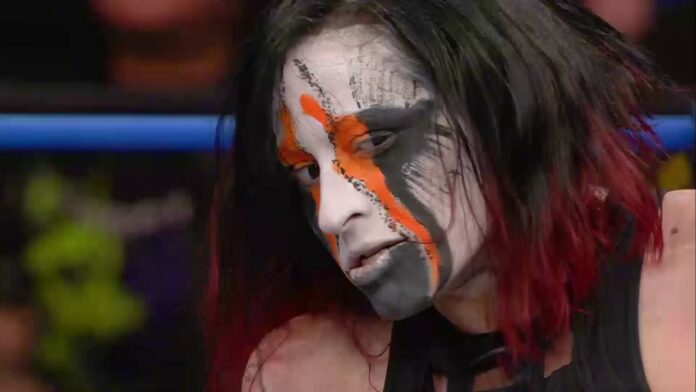
When Vince McMahon was exiled in disgrace from his WWE empire a few years ago, there was undoubtedly a level of uncertainty around the future of the company, as the publicly-traded corporation had never been without a McMahon in some form or fashion since Vince Sr. founded Capital Wrestling as a northeast group decades ago. More specifically, there was a laundry list of examples of what happened to pro wrestling companies that allowed corporate suites to attempt a paint-by-numbers approach to the sports entertainment business in the past. You can script a push, but you can’t shoehorn someone into the role of a money-drawing superstar. The most recent example is, Roman Reigns cast as the next John Cena flopped for several years, and without some level of competition to push the direction of the industry, McMahon tried to force that narrative to almost embarrassing results for 5-6 years on WWE programming. Ironically, but not surprising, when Roman Reigns was allowed to organically evolve as a heel, he had one of the most important title runs of the past few decades for WWE, and his return to the company earlier this month at Summer Slam was an incredibly memorable moment.
Thankfully, when Endeavor, the parent company of the UFC, bought the WWE last year to merge it with the MMA league, the multi-billion dollar conglomerate knew enough to know that they didn’t know about pro wrestling. Much like its successful formula with the Ultimate Fighting Championship, Endeavor put its media muscle and promotional dollars behind the brand of WWE without attempting to influence the direction of the content. Ari Emanuel makes billions of dollars for Endeavor because he knows how to navigate these waters, he knew he wasn’t a wrestling guy so he wasn’t going to step on the toes of those who had the experience to run a sports entertainment company.
As we know, Triple H, who many assumed would take over WWE with Stephanie McMahon one day in the future, is now the guy running the organization. It’s rather odd that despite being seasoned for the role for several years prior, Triple H was almost minimized in his role when the real-life Paul Levesque had a health scare with heart issues a few years ago. Perhaps, Vince wasn’t truly going to give his son-in-law keys to the castle as long as McMahon still had a desk at Titan Towers.
When the horrendous details of a lawsuit against Vince were revealed earlier this year, he became persona non grata within the realm of WWE, which prompted him to sell his stock in the company, relinquishing any interest or control in the organization. TKO, the corporation that was formed under the WWE/UFC merger, firmly gave control to Triple H to steer the direction of the product, while using its distribution power to expand the reach of WWE programming, which is one of the reasons that Bash in Berlin will be hosted in Germany this weekend. From a macro level, that’s the biggest effect that TKO had on the dynamics of WWE, it took steps to truly globalize and thus maximize the potential revenue, of the WWE brand.
This will be further cemented when Raw makes the jump to Netflix in January, as it will bring the WWE shows to anywhere with an internet connection. Prior to this, management had to negotiate specific TV deals in different countries throughout the world. As we know, because of the logistics of time zones and travel, many foreign markets don’t get many live events, building up the demand for shows to be brought to those countries. The Netflix deal could open the door for more premium shows outside of the United States.
Of course, that’s the business side of the corporate world. Still, Triple H’s influence on the WWE on a more weekly basis has also changed many of the troupes of a previous era.
We’ve seen over the past several months that NXT’s working agreement with TNA has been mutually beneficial to everyone involved. Anthem Entertainment wants relatively cheap originally programming, which is why they rescued Impact Wrestling from the brink of collapse in 2016. The show drew great numbers in Canada, and despite the expanded touring schedule over the past two years or so, TNA is essentially a Canadian project. There’s nothing wrong with that either, as if it makes a profit and keeps the doors open then it’s mission accomplished. Anthem isn’t going to invest the cash or take the risks involved to attempt to compete with the American landscape of professional wrestling. Even if they tried, it’s doubtful that Anthem could secure the star power or the distribution to try to compete with WWE or AEW. Again, revenue and profit are the true measures of success so if Anthem has found that for TNA then they have a successful business venture.
We’ve seen NXT talent like Charlie Dempsey and others show up in the Impact Zone, while names like Jordynne Grace and Joe Hendry appear on WWE programming. Under McMahon, the WWE rarely ever recognized the existence of other pro wrestling companies and certainly wouldn’t take the time to feature other stars. It goes without saying that TNA is absolutely no threat to WWE, and if anything, the survival of TNA provides a platform for more talent to make a name for themselves. Maybe Joe Hendry has the potential to be a major star, but he won’t get the chance to fully utilize it unless there’s a stage for him to be discovered. The WWE is absolutely a machine, but even they can’t discover or develop the entire industry, the cookie-cutter approach to talent development in the mid-2000s was proof of that. With this working agreement, more talent gets their chance to shine, and if WWE finds one top-drawing star from the experiment then it was worth it. At the same time, TNA gets an increase in brand awareness, albeit on a smaller scale, and the added benefit of NXT talent to keep its product more contemporary.
Granted, I still find the concept of a developmental brand on national television to be counterproductive, as it puts less experienced performers on live television where their mistakes can be seen by a more mainstream audience, but considering that the show got a rights deal to move to the CW, it’s tough to argument with the goals of the brand if its profitable for the corporation. Along with that, the office has to give the audience of the Tuesday show, which is the least watched on the WWE line-up, a reason to tune into a product that is often inconsequential in the grand scheme of things.
Last night, TNA knockout, Rosemary made her surprise NXT debut, and it was another unique element that makes the developmental brand standout among the current crowded wrestling landscape. This isn’t to say that Rosemary or necessarily any other TNA talent will suddenly skyrocket to main event Wrestlemania, but it’s a fun dynamic that brings an organic dynamic to the show.
That might be the biggest takeaway from the Triple H era so far, the tired cliches that were used to an exhausting level, both from a booking and production approach were mostly phased out of the product, particularly the ridiculous amount of camera cuts when Kevin Dunn left the company. Obviously, Triple H isn’t perfect, but the shows have a more organic and spontaneous presentation than the product had for several years.
What do you think? Share your thoughts, opinions, feedback, and anything else that was raised on Twitter @PWMania and Facebook.com/PWMania.
Until next week
-Jim LaMotta
E mail [email protected] | You can follow me on Instagram, Facebook, & Threads @jimlamotta89







